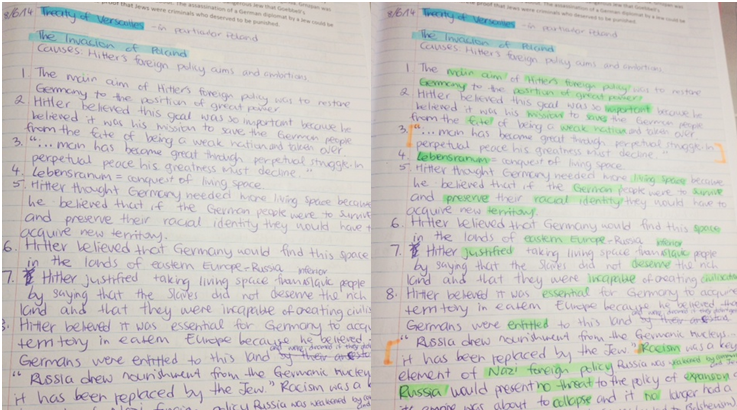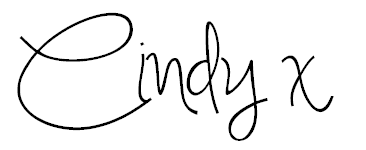Hello Everyone!
Today I thought I'd have a wee chat about studying. School is stressful. I seem to always find people wondering how to do well in school and get good grades. So today, I thought I would share my top 5 study tips to survive and succeed at school! :)
P.S: Please emotionally prepare yourself for my horrible handwriting. You have been warned.
P.S: Please emotionally prepare yourself for my horrible handwriting. You have been warned.
1. Prioritize
To really stay on top of your work load you've got to get the most important, most urgent tasks done first. To do that I like to make daily to-do lists once I get home from school of things I need to do from the most important to the least important. You don't have to be as organised as me, writing daily lists, I'm a bit of a weirdo like that anyway, but I think it's important to have a complete awareness of what exactly you need to get done first, and the things that aren't as urgent or important you can leave for later when you have time. You could just write weekly lists or write a little note in your diary/planner.
Here's an example of one of my to-do lists for an intense study night. I had heaps of homework that night and an accounting test in two days so you could see my emphasis on the accounting practice tests to complete. I put the most urgent things at the top to complete and wrote a little 'note to self' because I knew I would procrastinate.
For smaller to-do lists I write what I need to do on post-it notes and stick them on a photo frame on my desk so I constantly see it.
This is my notebook I write my longer to-do lists in. I thought it was pretty and very hipster. It's from Typo.
2. Sponge and Sieve
Sponging and sieving is the basic technique for organizing notes, first absorb information and then filter it. In some shape or form you need to be able to acknowledge what is essential for your tests and for your overall understanding and what is not so necessary. This also prevents what I call 'complete brain explosion' from an overload of irrelevant information. For example, a really simple way to filter information is to highlight key words, don't highlight everything, read a paragraph and highlight all necessary information that will come in handy later on. Another thing that is more time consuming is to re-write your notes. I write everything down in class, whether it's of what my teacher is talking about or has written about on the board, I absorb all the information, like a sponge. (My books for note-taking are horrific because I scribble down so much information). Sometimes it's a simple matter of crossing out some things I don't need, but other times I need to re-write and condense my notes in a way that is easier for me to understand - thus sieving information.
The left is 'sponging' by writing down everything and the right is 'sieving' by selecting key words and quotes.
3. Prepare!
Manage your time and stay organised. Prepare for your end of year exams well before the end of the year. (I would start preparing notes and flash cards at least 2 months before). At my school we have topic tests throughout the school year as well as end of year exams (externals). I find it a really helpful method to make 'study notes' which are basically condensed notes with a list of key words and definitions, I write these 'study notes' on a piece of refill and file them away in a small binder which I call my study binder. This study binder now contains almost a whole years worth of notes condensed down into manageable, tidier pages for me to study from at the end of the year. That way when I'm preparing for my end of year exams I don't need to spend as much time trying to gather relevant notes from my messy books, instead I have a binder full of neat notes ready for me to study from. I really like this method because it makes studying much more effective for both the tests in school and the big tests at the end of the year. It's just a great method to save time and prepare early so you're not cramming for the big exams.
This is me pretending to rewrite notes even though I've already written them.
4. Study Accordingly
It is really important that you switch your study techniques up a bit. This will not only keep you interested and increase your overall performance when studying, but it will also make it much easier to learn information when you customize your study techniques according to your subject.
Universal Study Tools: Flashcards are excellent for any form of subject where you need to learn a definition, they're relatively quick and easy to make. I'd recommend storing flashcards away with paper clips for exams. I also find it really helpful to buy textbooks for practice questions. I would recommend buying your own textbooks from the book store (Paper plus or Whitcoulls) so you can write in them. The most helpful ones for me are the ESA Study Guides, Learning Workbook Textbooks and AME Workbooks. These are great because they're specially written for NCEA level exams and the AME workbooks include past NCEA exam questions with detailed answers. These usually cost around $25 each, but if you don't want to spend the money, it's a good idea to borrow text books from the library for free (they are usually located in the teen fiction area).
English is where you have to really be insightful and know your texts. I find it a really good method to Google for some ideas. I am in no way saying to copy anything! Do NOT do that, it is plagiarism. But it is a good idea to have a look on Sparknotes, read some Wikipedia summaries, have a look at Crash Course on Youtube (John Green and Hank Green are on it), read some book reviews on Goodreads, to really gain a better understanding of the text so you can come up with some insightful ideas of your own. To save time I would also recommend Googling important quotes and cross-referencing to check if they are legit, instead of reading the novel or whatever it is all over again. There are so many resources out there to help you!
Maybe don't buy this many books.
(Left to right) ESA Study Guides, AME Workbooks, Learning Workbooks
I love using Youtube to extend myself or get an overview of the whole topic. Youtube videos are especially helpful because they don't take forever to watch (15 minutes tops) and you can learn things visually and you can replay videos. Crash Course is my favourite channel for Physics and Biology. It is presented by the Vlogbrothers (John and Hank Green, yes, TFIOS John Green) and they make really quick and 'to the point' visual videos. They do talk relatively quickly so I would recommend putting on the captions (the button by the full screen button) so you don't miss anything they say. On this channel Hank teaches Biology, Ecology, Chemistry, Psychology, and John teaches all sorts of History and Literature.
Another great Youtube channel is Khan Academy. This is taught more traditionally with qualified teachers verbally teaching you while writing down notes and drawing diagrams. Khan Academy gives a deeper understanding of each subject and they explain how to do things really well. I like watching Khan Academy videos on Physics and Maths but they also offer videos on Biology, Chemistry and other Sciences, History, Philosophy, and Economics.
Science is entirely about knowing your stuff. You need to know how everything links together. I find it really helpful to learn science visually because it is quite a visual subject with diagrams and such. I like to watch science Crash Course videos on Youtube, look in textbooks and re-read notes, draw lots of diagrams and highlight key words and definitions. Khan Academy on Youtube is also really good for understanding Physics. In Biology I like learning definitions, watching videos, doing all these things mentioned above, and then to test myself I give myself a blank piece of paper and go wild drawing diagrams; whenever I draw something I scrawl a definition beside it, I use all sorts of colours, make little jokes with stick figures, I basically go insane, releasing everything I've learnt onto this once piece of paper and making connections between different parts and it really does work for me.
Maths is all about practice. Sure, there are formulas and rules to memorize but there will always be the challenging questions at the end of the test that you would never have seen before, but again, this one is all about practice. Practice. Practice. Practice. I cannot say it enough. Search online or on your school website for past papers, print every single one of them off and do them! You can print off past NCEA papers for most your subjects from the NZQA website. In fact, studies have shown that practice papers are one of the most effective ways of studying because it's all about your brain retrieving this information that you've learnt. This technique also goes for Accounting. A great Youtube channel to help with maths is KhanAcademy.
5. Mindset Matters
(This is when I lecture you)
(This is when I lecture you)
In the moment, studying may seem like a chore but you have to look into the future and look at all the positives of studying. Sure, it may be frustrating and time consuming, and I'm sure you would much rather be on Facebook or hanging out with your friends. But trust me, at the end of the day it's worth it. If you want to succeed in life, earn big bucks, have the door open for a whole variety of great universities and careers then you have to put in the extra time and effort. Some people may be 'naturally smart' and that's lucky for them. But getting good grades isn't about having an amazing memory or being naturally smart. It's about putting your effort into studying, thinking critically about what you've learnt and actually sitting down and doing your homework. I am in NO WAY 'naturally' smart at all, I get good grades because I care about my education and my future and try ridiculously hard in school because I understand that all this effort is ultimately benefiting myself in the future. If you aren't trying your best and studying as hard as you think you need to, to get good grades, you might want to think about re-evaluating your values and looking ahead into your future. If you cannot honestly say that you have tried your best, then try harder. We all have commitments and it's our responsibility to plan ahead and make time. Don't be afraid to turn down some social activities to finish an assignment because there will be plenty more parties in the future, but let's be real here, a good education is best to get it done right the first time.












No comments :
Post a Comment